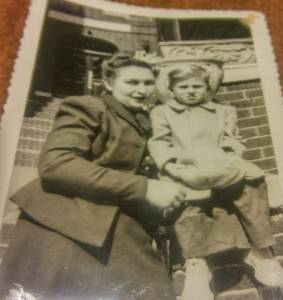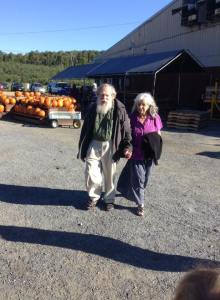With COVID-19 spreading, more parishes are cautiously telling the congregation to skip or modify the sign of peace, and announcing that the Eucharist will only be distributed under the species of bread, not wine.
This has happened in other years, when other sicknesses were circulating, and every year, there are complaints. Some Catholics claim we can’t get sick from drinking the Precious Blood, because . . . well, it’s Jesus! Jesus doesn’t make you sick. Only those approaching the altar with a poor and feeble faith would be afraid to drink from the cup. How can we profess our trust that Christ is life, and then immediately turn fearfully away from receiving the gift of His blood?
The answer is that faith might trump science, but it’s presumptuous to assume that it will. So let’s be clear: If I say that I know I’ll be preserved from transmission of disease because it’s Jesus, I’m saying that I know I’ll receive a miracle.
But let’s set aside this faith-based argument for a moment and address a the second argument I often hear, which is that there’s also no scientific reason to skip the Precious Blood, because the alcohol in the wine would kill any germs anyway. I was surprised to learn that there is a fairly low risk of actually contracting an illness from sharing the chalice, because metal doesn’t harbor microbes well, and because the rim is wiped regularly. Still, low risk is some risk, and some diseases carry more of a threat than others. I decided several years ago that if I have good reason to worry about my family’s health, then we have good reason to reverently bypass drinking from the cup.
Let’s talk about what is actually in that cup. We know that it is actually the Precious Blood. Its substance is the Body, Blood, Soul, and Divinity of Christ Himself. But we also know it still has all the accidents, or physical properties, of wine: grapes, ethanol, etc. It sloshes like wine; it’s purple like wine; it has a little wobbly reflection of the fluorescent overhead lights in it, like wine; if you drink enough of it, you’ll get drunk, just like with wine.
And if it has other people’s germs in it, you might get sick from putting it in your mouth. Just like wine.
Harumph, you may say. I’m no fool. We most certainly can get sick from drinking from the cup – but that sickness is a small price to pay in exchange for receiving the Eucharist. After all, if Jesus walked through our front door during flu season, would we chase Him off because we might catch something?
But this is pride disguised as piety. Unlike the unprecedented house call described above, the Eucharist is offered frequently, every day or at least every week; and it’s offered under both kinds. One reason for this is that, if you need to be prudent and forego this sacrament completely one day (by staying home sick), or forego one kind (by only receiving the more hygienic Host), then the Church, as always, is accommodating.
If we’re going to call the integrity of our fellow Catholics into question, then here’s a better question: How can we say we love and cherish the Church while sneering at the accommodations she offers us? You can come again another day, and our patient Lord – who made the world, germs and all – will be there, happy to see that you’re feeling better now, and happy to know that you take the health and safety of your brethren seriously.
Because there’s the more pressing concern. If we do get sick, we risk passing along our sickness to others, to the elderly, to people with compromised immune systems, to babies. When we make willing sacrifices, we must be sure that we’re the ones who will suffer, not other people. Deliberately exposing oneself to potentially fatal disease, and possibly spreading it . . . you know, maybe just put a pea in your shoe, instead, or say the rosary on your knees.
So maybe you’re convinced that, for practical and ethical reasons, it does make more sense to avoid drinking from a communal cup. But something about it still feels off. It’s very hard to shake the feeling that, even as we acknowledge it’s possible to transmit germs through the Eucharist, surely it’s still somehow more spiritually elevated to dwell only on the pure, holy, and edifying aspects of the sacrament.
But it’s really not. Here is why:
If the Eucharist were only spiritual and edifying, then Christ would be a fool. Why would He bother to become incarnate, if He expected us to pretend He wasn’t? Why would he bother taking on a human flesh, if He wanted us to flutter our eyes politely and pretend His body isn’t a real body?
Being a Catholic is all about the body. It’s all about manning up and admitting that this hunk of meat that is us – whether it’s athletic, soft, withered, paunchy, or bouncing brand-new – is really us. Jesus’ body was really Jesus. Jesus, like us, saw with His googly eyeballs, all stuffed with jellylike vitreous humor; He moved His limbs with the aid of diarthrotic joints and synovial fluid. He had boogers. Remember? “Like us in all things but sin.”
I have always felt uneasy around the caroling of certain overly lovely traditions: that the baby Jesus, at His birth, filtered through Mary’s hymen like a sunbeam through a window pane; that “Little Lord Jesus, no crying He makes.” Why shouldn’t He cry? I cry.
When I remember that He is really, truly a human, I remember that he really truly understands the burden of being a human. He doesn’t whisk our troubles away, or dazzle us with His divinity to distract us from the real world. He sees our burden. He stands alongside us and helps us lift it, because He knows that it is real. Because He is real.
Isn’t our faith strange? It would be weird enough if we taught that the Blood of our Savior gave us mystical immunity from the flu. But the truth is even weirder.
What’s weirder still is that what looks all sloshy and purple, and what smells and tastes like something on sale at the Quik-E-Mart, is what will save our souls.
Weirdest of all: Christ is our Brother. His body had germs. His transubstantiated Blood can have germs. If we don’t understand this, we’re in danger of making the Eucharist into something a little bit silly – something removed from us, something utterly beyond our grasp, something nebulous and magical, a magic trick.
But the Eucharist is not magic, it’s better: It’s a miracle. The Eucharist is not removed from the world; it transforms the world.
Maybe God really will protect those trusting parishioners who hope in His mercy, and maybe He will reward their trust with good health. Miracles like this are possible. Saints have survived for years with no physical nourishment other than the Eucharist. St. Claire once frightened off an attacking horde of Saracens by holding up a consecrated Host.
But I don’t think I’m missing anything by taking germs seriously. Thinking of God’s body, of His brotherhood with us, and thinking most of all of His suffering, and of His sympathy, helps me remember something it’s easy to forget, when I’m worn out, disgusted, flattened, fed up, and exhausted by this world and its disease: Jesus is here with us, right now. He is one of us.
***
Image: Detail of photo by Josh Applegate on Unsplash
A version of this essay originally ran at Inside Catholic in 2009.






























